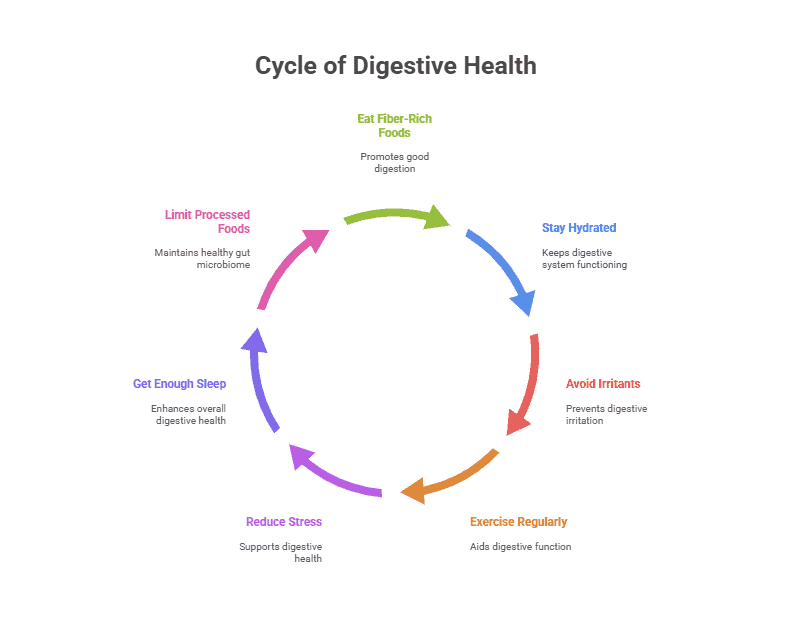Our digestive system plays a crucial role in breaking down food and absorbing nutrients that our bodies need to function properly. It is important to take care of our digestive system in order to prevent digestive issues and maintain overall health. Here are 10 tips for maintaining a healthy digestive system:
1. Eat a Balanced Diet
Include a variety of fruits, vegetables, whole grains, and lean proteins in your diet to ensure you are getting all the necessary nutrients for good digestive health.
2. Stay Hydrated
Drink plenty of water throughout the day to help keep your digestive system running smoothly and prevent constipation.
3. Chew Your Food Thoroughly
Chewing your food properly helps to break it down into smaller pieces, making it easier for your digestive system to process and absorb nutrients.
4. Limit Processed Foods
Avoid foods high in sugar, saturated fats, and artificial ingredients, as they can be difficult for your digestive system to break down and may lead to digestive issues.
5. Incorporate Probiotics
Eat foods rich in probiotics, such as yogurt, kefir, and sauerkraut, or take a probiotic supplement to promote a healthy balance of gut bacteria.
6. Exercise Regularly
Physical activity can help improve digestion and prevent constipation by stimulating the muscles in your digestive tract.
7. Manage Stress
Chronic stress can have a negative impact on your digestive system, so it is important to find healthy ways to manage stress, such as meditation, yoga, or deep breathing exercises.
8. Get Enough Sleep
Poor sleep habits can disrupt your digestive system and lead to issues like indigestion and bloating. Aim for 7-9 hours of quality sleep each night.
9. Avoid Smoking and Excessive Alcohol Consumption
Smoking and excessive alcohol consumption can irritate the lining of your digestive tract and increase your risk of developing digestive disorders.
10. Listen to Your Body
Pay attention to how your body reacts to different foods and make note of any symptoms or discomfort. This can help you identify trigger foods and make necessary adjustments to your diet.
Summary
Maintaining a healthy digestive system is essential for overall health and well-being. By following these 10 tips, you can support your digestive system and reduce the risk of digestive issues. Remember to eat a balanced diet, stay hydrated, chew your food thoroughly, limit processed foods, incorporate probiotics, exercise regularly, manage stress, get enough sleep, avoid smoking and excessive alcohol consumption, and listen to your body. Taking care of your digestive system now can have long-term benefits for your health.
Key Takeaways:
- Include a variety of fiber-rich foods in your diet to promote good digestion
- Stay hydrated by drinking plenty of water throughout the day
- Avoid excessive consumption of alcohol and caffeine, as they can irritate the digestive system
- Exercise regularly to help keep your digestive system functioning properly
- Reduce stress through relaxation techniques like deep breathing or meditation
- Get plenty of sleep to support overall digestive health
- Limit processed foods and added sugars in your diet to maintain a healthy gut microbiome
Key Terms:
- Digestive System: The system in the body responsible for breaking down food and absorbing nutrients.
- Healthy: The state of being free from illness or injury and in good physical condition.
- Microbiome: The collection of microorganisms living in and on the human body, including the digestive system.
- Probiotics: Live bacteria and yeasts that are good for your digestive system.
- Fiber: A type of carbohydrate that the body can’t digest, which helps promote healthy digestion.
- Hydration: The process of providing adequate fluids to the body to maintain proper function.
- Exercise: Physical activity that promotes overall health, including digestive health.
